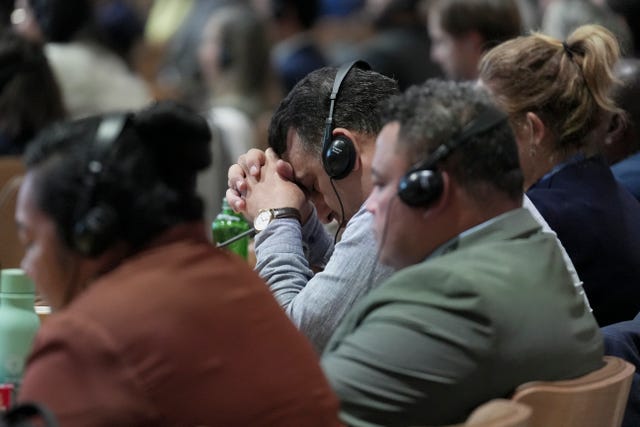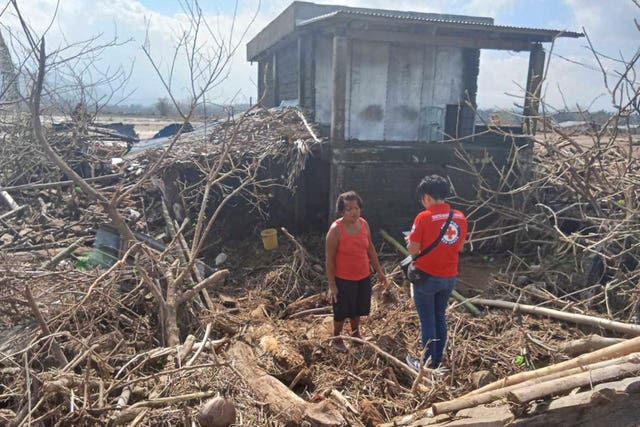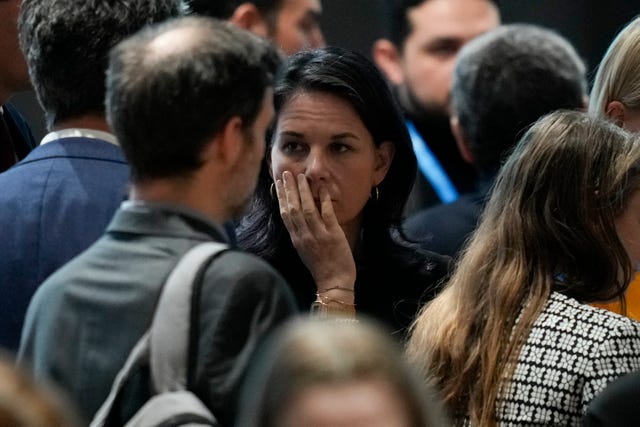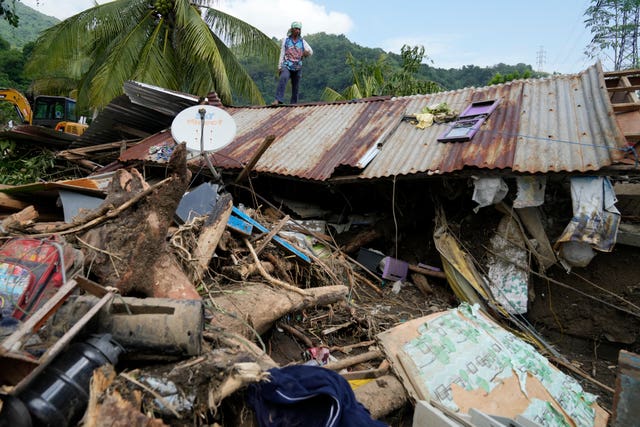Ed Miliband says Cop29 deal agreed at ’11th hour for the climate’
Climate groups called the agreement, designed to help developing nations, a ‘catastrophe’

Energy Secretary Ed Miliband has called a financial package for developing nations a “critical 11th-hour deal at the 11th hour for the climate” as the United Nations environmental conference drew to a close.
But climate groups called the 300 billion dollar (£239.5 billion) funding agreement, designed to help developing nations combat the impacts of global warming, a “drop in the ocean” of already-rising seawaters.
After the deal was announced at the Cop 29 conference in Baku, Azerbaijan, he said: “It is not everything we or others wanted but is a step forward for us all.
“It’s a deal that will drive forward the clean energy transition which is essential for jobs and growth in Britain and for protecting us all against the worsening climate crisis.”
He said there is “much more work to do” to prevent climate catastrophe.
“We’ve pushed for ambition in Baku and have restored the UK back to a position of global climate leadership,” he said.
“We will keep up the pace, working with other countries before the world meets again in Brazil for Cop30. Only by doing this can we keep future generations safe and reap the benefits of the clean energy revolution.”
US President Joe Biden said that while “substantial work” remained to be done, the conference had set an “ambitious international climate finance goal”.
“While some may seek to deny or delay the clean energy revolution that’s underway in America and around the world, nobody can reverse it — nobody,” he said.
Many in attendance were less than impressed with the multi-nation financial commitment with the final sum more than 125% less than the 1.3 trillion dollars (£1.37 trillion) per year impacted nations had said was needed.
The new climate bursary is, however, three times more than the 100 billion dollar (£79.8 billion) a year 2009 deal that is soon to expire.
ActionAid UK senior climate resilience specialist Zahra Hdidou described the text of the agreement as “a complete catastrophe and a farce,” adding that as “floods and droughts tearing through the Global South, the goal announced remains a drop in the ocean compared to the trillions needed to help climate-hit communities adapt and recover.”

Anti-poverty group Christian Aid also criticised the Cop29 deal.
“People of the global south came to these talks needing a lifeboat out of the climate crisis. But all they got was a plank of wood to cling to,” a spokesman said in a statement.
“This summit has been hijacked by rich countries who have failed to negotiate in good faith. The cost of their actions here will be paid in the lives of vulnerable people on the front lines of climate breakdown.”
Friends of Earth head of policy Mike Childs credited the UK delegation for playing a productive role during the talks, but still said that in terms of climate leadership, the planet is still light years away from where we were at last year’s meeting in Dubai.
“These latest international talks failed to solve the question of climate finance,” he said.
“Instead they have again kicked the can down the road. Developing countries are being hammered by climate extremes now, predominantly fuelled by the current and historic polluting activities of rich nations, like the UK.”

Earlier on Saturday, negotiators went from one big room where everyone tried to hash out a deal together into several separate huddles of upset nations.
Hallway talk oscillated between hope for shuttle diplomacy to bridge the gap and kicking the can down the road to some time next year. Negotiators and analysts had mostly given up hope that the host presidency would get the job done.
After an initial proposal of 250 billion dollars (£199 billion) a year was rejected on Friday, the Azerbaijan presidency brewed up a new rough draft of 300 billion dollars that was never formally presented but also dismissed by African nations and small island states, according to messages relayed from inside.
Then a group of negotiators from the Least Developed Countries bloc and the Alliance of Small Island States left the room in protest.

“We’ve just walked out. We came here to this Cop for a fair deal. We feel that we haven’t been heard,” said Cedric Schuster, the Samoan chairman of the Alliance of Small Island States, a coalition of nations threatened by rising seas, in a comment to Al Jazeera.
Evans Njewa, chair of the Least Developed Countries (LDC) group, added to the Middle Eastern publication that the “current deal is unacceptable”.
Panama’s Juan Carlos Monterrey called it “unacceptable” in a post on X, saying “the text is detrimental to our future and the qualified goal is still very low”.
Despite the outraged reaction of climate activists and advocates, UN climate change executive secretary Simon Stiell called the Baku finance goal an insurance policy for humanity.
“This deal will keep the clean energy boom growing and protect billions of lives. It will help all countries to share in the huge benefits of bold climate action: more jobs, stronger growth, cheaper and cleaner energy for all. But like any insurance policy – it only works – if the premiums are paid in full, and on time,” he said in his Cop29 closing statement.

He acknowledged that no country got everything they wanted and that the world leaves Baku with significant work to do.
He added: “So this is no time for victory laps. We need to set our sights and redouble our efforts on the road to Belem.”
Developing countries have accused the richer nations of trying to get their way – and a small financial aid package – via a war of attrition.
Small island nations, particularly vulnerable to climate change’s worsening effects, accused the host country presidency of ignoring them for the entire two weeks.





